Search
Remove Ads
Advertisement
Summary 
Loading AI-generated summary based on World History Encyclopedia articles ...
Search Results

Definition
Kami
In the Shinto religion kami is an all-embracing term which signifies gods, spirits, deified mortals, ancestors, natural phenomena, and supernatural powers. All of these kami can influence people's everyday lives and so they are worshipped...

Definition
Shinto
Shinto means 'way of the gods' and it is the oldest religion in Japan. Shinto's key concepts include purity, harmony, family respect, and subordination of the individual before the group. The faith has no founder or prophets and there is...
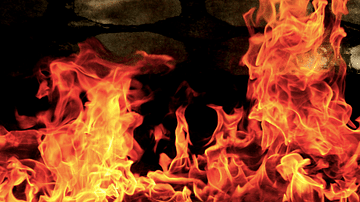
Definition
Kagutsuchi
Kagutsuchi (aka Hi-no-Kagutsuchi) is the Shinto god or kami of fire and is also known as Homusubi. The son of Izanami and Izanagi, the fire god is the father of eight warrior gods and eight mountain gods, amongst others. Such a destructive...
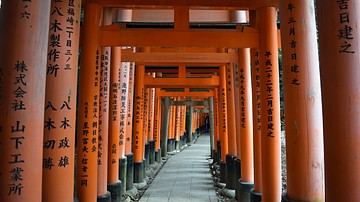
Definition
Inari
Inari is the Shinto god of rice, the protector of food, and bringer of prosperity. He has over 40,000 shrines dedicated to him large and small across Japan, the oldest and most important of which is the Fushimi Inari Shrine near Kyoto with...
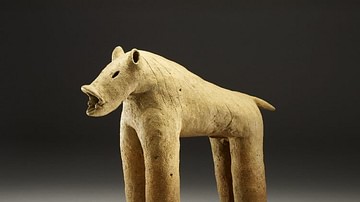
Definition
Kofun Period
Following the Yayoi Period of Japan when farming and metalworking techniques were introduced from mainland Asia was the Kofun Period (c. 250 CE - 538 CE) where the religion of Shinto emerges from the beliefs of previous eras and the Yamato...
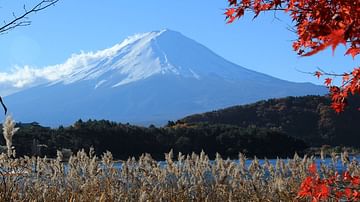
Definition
Mount Fuji - Japan's Tallest and Most Sacred Mountain
Mt. Fuji (Fujisan) is the tallest mountain in Japan and, with its classically symmetrical snow-capped cone, has long been the symbol of that country. The volcano is regarded as a sacred kami or spirit in the Shinto religion, specifically...
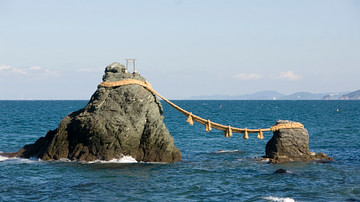
Definition
Izanami and Izanagi
Izanami ('she who invites') and Izanagi ('he who invites') are the primordial gods of the Shinto religion who are believed to have created the islands of Japan and given birth to many of the other Shinto gods or kami. The myths of Japanese...
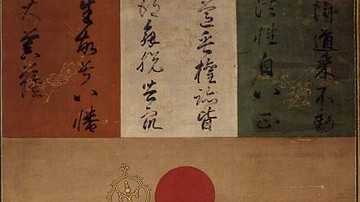
Definition
Hachiman - Origin of the Kamikaze Wind
Hachiman is the ancient Shinto god or kami of war, divination, and culture. He is famously credited with sending the kamikaze or 'divine wind' which twice dispersed the invading fleets of Mongol ruler Kublai Khan in the 13th century CE. This...

Collection
The Shinto Religion
Shinto is the oldest religion in Japan and has become an integral part of that country's culture whether it be in daily worship and ritual, the famous tourist site shrines or the appearance of Shinto characters in contemporary comics and...
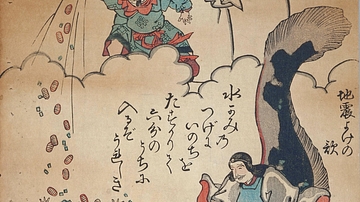
Definition
Namazu
Namazu (aka Onamazu) is the giant catfish of Japanese mythology held responsible for creating earthquakes. The creature was thought to live under the earth, and when it swam through the underwater seas and rivers there, it caused earthquakes...